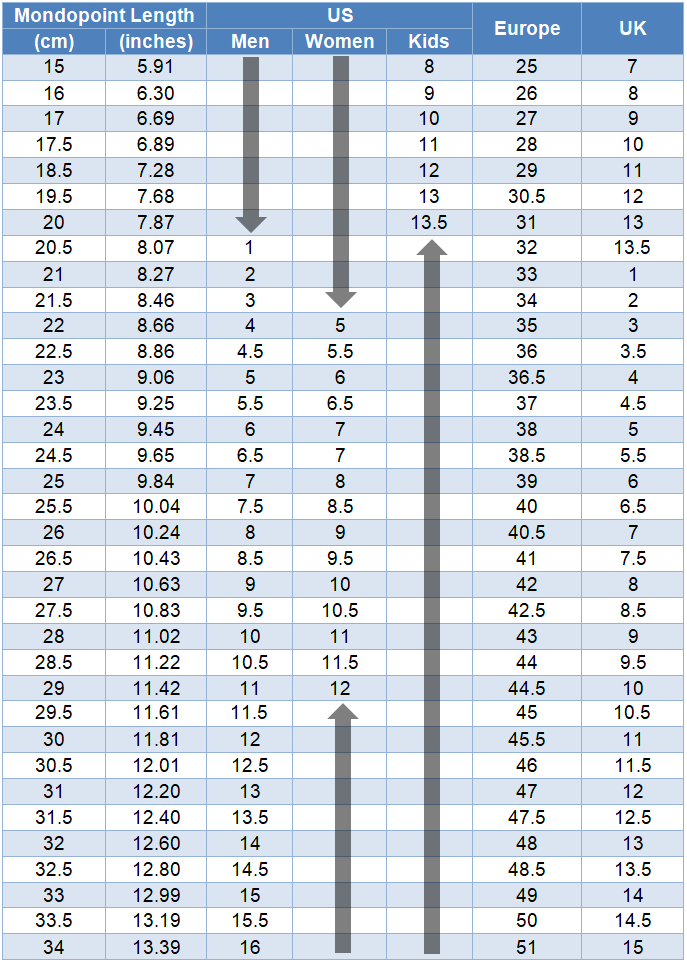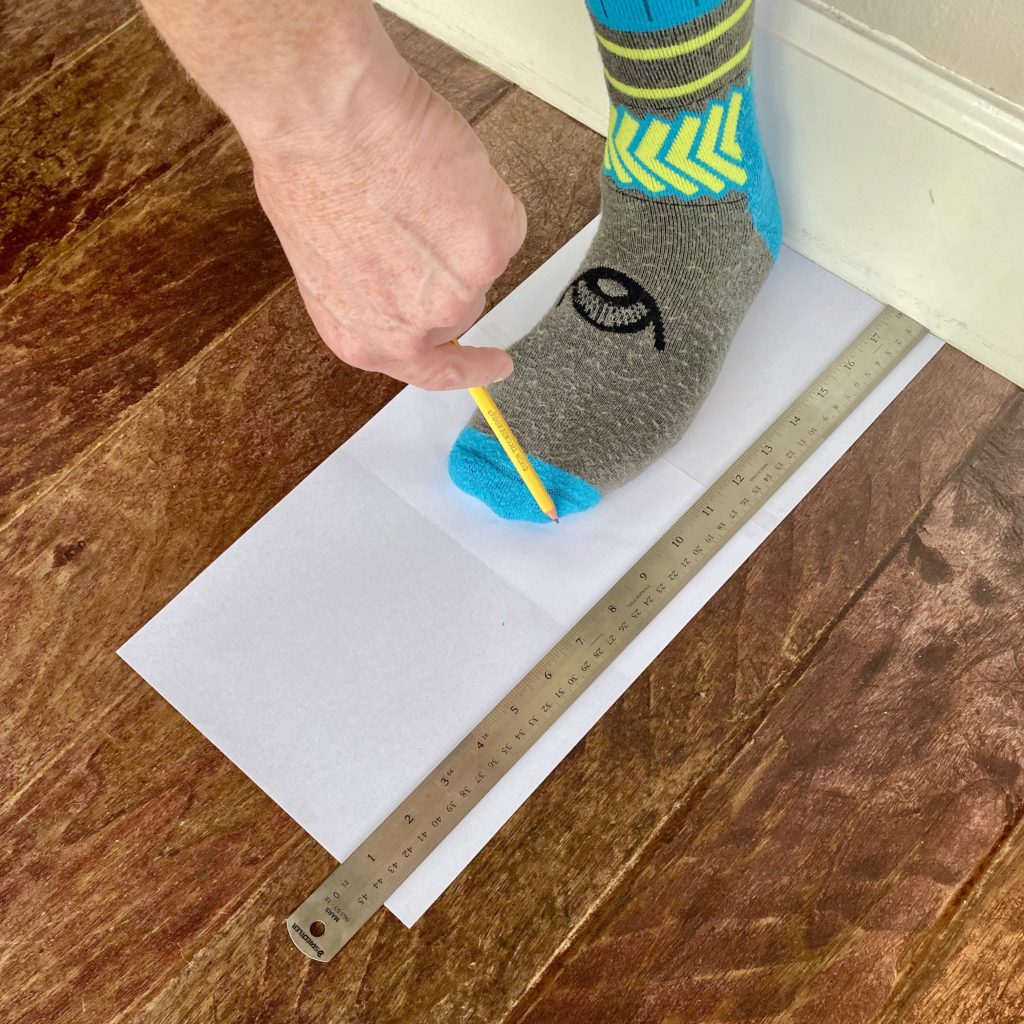One of the most critical components of your snowboard setup is your snowboard boots. So understanding snowboard boot sizing and getting the exact size and fit that’s right for you is essential.
Simply put, a properly fitted pair of snowboard boots can be the deciding factor between an outstanding day in the mountains or a whole lot of foot pain and miserable snowboarding experience.
The goal of this guide is to answer the most commonly asked questions and give you some useful tips about snowboard boot sizing to minimize foot pain and cramping. We want to provide you with the information you need to help you be prepared when you go to buy new boots, so you can purchase the best pair for you and your snowboard riding style.
How to Size Snowboard Boots: What Size Snowboard Boots Do I Need?
Determining the correct length of snowboard boots is the first obstacle to overcome when shopping for snowboard boots. Unfortunately, it’s not always the case that your snowboard boot size will be the exact same as your street shoe size.
So a better place to start is first to measure the length of your foot using the Mondopoint system. For boot sizing using the Mondopoint system, the length of your foot from the heel to the tip of your most prominent toe is measured in centimeters (cm) to the nearest 0.5 cm.

If you’re getting fitted in a snowboard shop, then the salesperson should just use a Brannock Device to determine your size.
If you’re shopping online, then an easy method is to put a blank sheet or two of paper on a hard floor surface with the short edge up against a wall. Then stand on the paper with your heel against the wall and your weight equally balanced on both feet.
Use a pencil to trace around the front of your foot. Then use a ruler to measure the perpendicular distance between the most prominent toe mark and the short edge of the paper you had up against the wall. This length in centimeters is your Mondopoint size.
With your Mondopoint size and the help of snowboard boot size charts, you can narrow down where to begin your search. I’ve included a general snowboard size chart below based on average sizes to convert your Mondopoint size to one of the more common sizing scales in use.
Snowboard Boot Size Chart

This chart gives an excellent place to start, but boot sizes can fluctuate from brand to brand. So to be even more accurate, it is best to visit the boot manufacturer’s site and refer to their size chart.
In most cases, the manufacturer’s size chart will allow you to determine your correct boot size based on your measured Mondopoint size.
However, using the Mondopoint chart is not always guaranteed to measure your foot size dead on – and different brands may fit differently depending on the year of boot manufacturing.
When it comes to width, you should only concern yourself with width if you know you have wide feet. If you have wider feet, you may want to try a boot that’s specifically designed to fit wide feet. For more on this subject, check out our wide snowboard boots article.
It may seem a bit confusing, but knowing how to use the charts and understanding what the numbers mean gives you the best shot at selecting the right size on your first attempt.
Snowboard Boot Sizing Tips
Now that you know your measurements, it’s time to test out some different brands and styles. We highly recommend you try boots on in person if at all possible.
If you plan to order online, then be sure to pick a retailer with a good return policy and, hopefully, free shipping so you can order a range of sizes to get the best fit.

Here are some helpful tips to keep in mind when you’re trying on snowboard boots to help maximize foot comfort:
- Wear thin, synthetic snowboard socks. Not thick or cotton socks.
- When standing, your toes should just lightly touch the end of the boot liner.
- The fit should be comfortable but snug.
- Check for pressure points mainly on the top of the foot and ankles.
- Make sure there is minimal heel lift – no more than 1/3 of an inch is the target.
- While flexing your knees, toes should hardly pull away from the front of the boot.
- Your heels should stay down when you flex your knees.
- Walk around in the boots for 20 minutes.
- The fit should not be painful.
- (Bonus Pro Tip): For the most accurate fit, we advise you try on your snowboard boots in the late afternoon or evening when your feet are at their biggest.
The style of riding is another factor to consider when choosing a size. For instance, riders that ride fast or on technical terrain may want a performance fit boot. Whereas, more conservative riders are looking at a recreational fit boot, to maximize comfort.
It is also essential to consider that the size of your snowboard boot should be compatible with the binding you intend to use. So if possible, strap into your bindings to verify compatibility.
Snowboard Boot Size vs. Shoe Size
You may be thinking you can just size snowboard boots based on your normal street shoe size. This method works ok if you’re not opposed to more trial and error to get the right fit.
Your snowboard boot size isn’t always the same as your street shoe size, so don’t expect that you’ll be done after sliding your feet into the first pair of a similar size boot as your sneakers.
Depending on the time of day, the brand of your normal sneakers, the brand of boots, and the thickness of socks, the sizes can be a perfect match or 1-2 sizes off. Best bet, measure your feet first, as described in an earlier section of this article and use size conversion charts.
How Should Snowboard Boots Fit?
A textbook fit for a pair of snowboard boots is that they should be snug with a firm fit over the top of your foot and around your upper ankle yet comfortable to ride all day. They should resist to some extent when you flex your knees and lean forward, while still allowing for comfortable movement without excess pressure anywhere.
When trying on snowboard boots, a proper fitting boot means your toes will barely touch up against the edge of the boot liner when you stand up with the boot fully laced.
As you bend your knees and crouch down into a snowboard posture, you should feel the toes pull back slightly, resulting in a proper fit.
Each part of the boot should feel tightly enclosed around your foot. You don’t want it to feel too tight, but it should feel secure without any pressure points.
Your snowboard boots may feel too tight the first time you try them on. But, over time, that padding inside the boot will pack out, sometimes up to half a shoe size, creating more space and a less secure fit.
Don’t make the mistake of buying boots that fit perfectly, or not tight at all, when new. Sure this is comfy when you’re initially testing them out or walking around the store, but will eventually lead to heel lift and cramps when you’re actually out riding.
Pro Tip: You should always wear appropriate snowboarding socks when trying on new boots and when you go riding.
REI has a great video about how snowboard boots should fit:
Do Snowboard Boots Run Big?
Based on our experience, snowboard boots tend to run true to size or pretty close. I wear a size 10 sneaker and wear Burton snowboard boots in size 10.
If you do have wide feet, bumping up a half size will sometimes be the answer. For more on this subject, check out our wide snowboard boots article.
With that said, some brands tend to run small by half a size, whereas others tend to run as much as one full size bigger. You definitely do not want your boots to be too big, which leads to blisters and lack of control.
The critical thing to look out for is the minimal heel lift discussed earlier. If you get laced up and forward lean, be sure your heels do not lift more than 1/3 of an inch.
Snowboard boot sizes vary from brand to brand so it’s hard to know which brand of boots will fit best in terms of pressure points and heel lift unless you actually try them on.
Snowboard boots should fit comfortably but snug, but not to the point where they cause you any aching. Remember, boots need several days of use for them to form and pack out to their accurate size, so they should be reasonably tight when brand new.
If you would like to accelerate the break-in process consider heat molding your liners. Many snowboarding shops can provide this service, or you can try doing it yourself like in this How To REI Video:
Conclusion
If you’re a beginner and have never purchased snowboard boots, this might have been a lot of information to absorb. Hopefully, we answered the most commonly asked questions about how to size snowboard boots.
With any luck, you are now armed with an improved understanding of snowboard boot sizing and are equipped to choose the right size snowboard boots for your needs based on our tips to maximize foot comfort.
Now that you have a better understanding of sizing you should check out our picks for the best snowboard boots.
Thanks for reading and we will see you out on the slopes!

